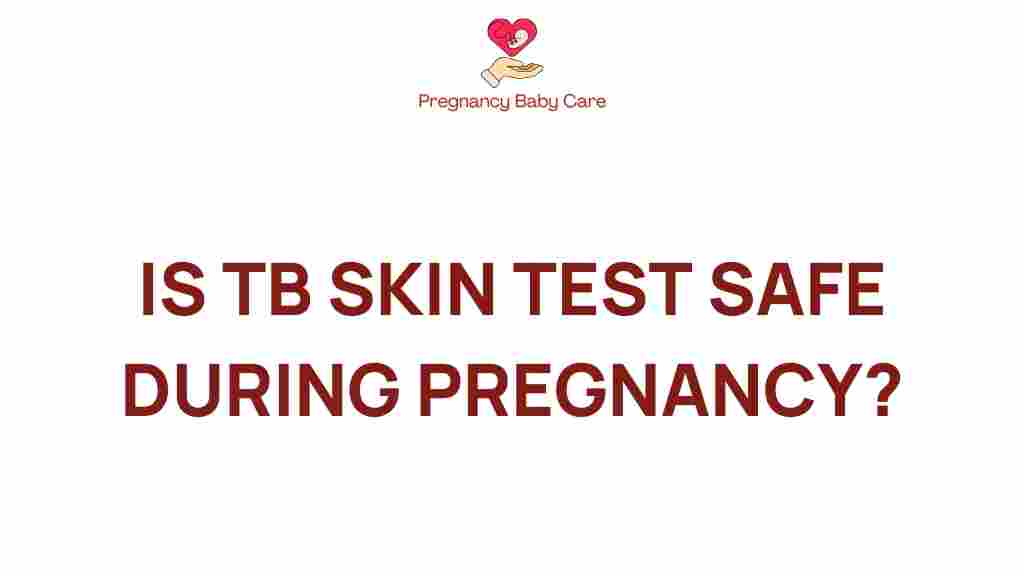Is the TB Skin Test Safe During Pregnancy?
Pregnancy is a time of heightened awareness regarding health and safety for both the mother and the developing baby. As part of prenatal care, various tests and screenings may be recommended, one of which is the TB skin test. This article explores the safety of the TB skin test during pregnancy, providing essential information on tuberculosis, maternal health, and medical guidelines to help you make informed healthcare decisions.
Understanding the TB Skin Test
The TB skin test, also known as the Mantoux test, is a diagnostic tool used to determine if a person has been exposed to the bacteria that causes tuberculosis (TB). It involves the intradermal injection of a small amount of purified protein derivative (PPD) and requires a follow-up reading of the reaction within 48 to 72 hours.
Why is the TB Skin Test Important During Pregnancy?
Pregnant women are more susceptible to certain infections due to changes in their immune system. Tuberculosis can pose significant risks to maternal health and fetal development. Therefore, screening for TB during pregnancy is vital for early intervention and treatment.
Pregnancy Safety and the TB Skin Test
Many expectant mothers may wonder about the safety of undergoing the TB skin test during pregnancy. According to various medical guidelines, including those from the Centers for Disease Control and Prevention (CDC) and the American College of Obstetricians and Gynecologists (ACOG), the TB skin test is generally considered safe for pregnant women.
- The test does not contain live bacteria, so there is no risk of causing TB infection.
- It provides crucial information that can help manage the health of both the mother and the baby.
- Early detection of TB can lead to timely treatment, which is essential for preventing complications.
Medical Guidelines Regarding TB Testing During Pregnancy
When considering testing during pregnancy, it’s important to follow established medical guidelines. Here are key points regarding the TB skin test:
- Risk Assessment: Healthcare providers often assess the risk factors for TB exposure in pregnant patients, such as international travel, close contact with TB patients, or living in high-risk environments.
- Timing of the Test: The TB skin test can be performed at any time during pregnancy, although it is often recommended during the first trimester as part of comprehensive prenatal care.
- Follow-Up Care: If the test result is positive, further evaluation and treatment should be discussed with a healthcare provider to determine the best course of action for maternal health.
Step-by-Step Process of the TB Skin Test
Understanding the process of the TB skin test can alleviate concerns about its safety and effectiveness during pregnancy. Here’s a step-by-step breakdown:
- Consultation: Discuss the need for the TB skin test with your healthcare provider during your prenatal visits.
- Administration: A small amount of PPD is injected into the skin of your forearm.
- Waiting Period: You will need to return to the clinic within 48 to 72 hours to have the test read.
- Reading the Results: A healthcare provider will check for any raised, red areas at the injection site, indicating a positive or negative result.
- Follow-Up: If positive, further diagnostic tests, such as a chest X-ray (which is safe during pregnancy), may be required.
Potential Concerns and Troubleshooting Tips
While the TB skin test is generally safe, there may be concerns or questions that arise. Here are some common issues and tips for addressing them:
- Allergic Reactions: Some individuals may experience allergic reactions to the PPD. Inform your healthcare provider of any known allergies beforehand.
- Test Anxiety: If you feel anxious about the test, talk to your provider about your concerns. They can provide reassurance and information.
- Follow-Up Appointments: Ensure you schedule your follow-up appointment to have the test read, as missing this could lead to unnecessary anxiety.
Conclusion
The TB skin test is a valuable tool in ensuring maternal health and preventing complications related to tuberculosis during pregnancy. As established by various medical guidelines, the TB skin test is safe for pregnant women and plays a crucial role in prenatal care.
It is essential for expectant mothers to engage in open discussions with healthcare providers about their health decisions. If you have questions or concerns regarding the TB skin test or any other aspect of your prenatal care, do not hesitate to reach out to your healthcare provider.
For more information on tuberculosis and maternal health, visit the CDC’s official website. To explore additional resources on prenatal care, check out this informative guide.
By staying informed and proactive, you can make the best healthcare decisions for yourself and your baby.
This article is in the category Health and created by PregnancyBabyCare Team
